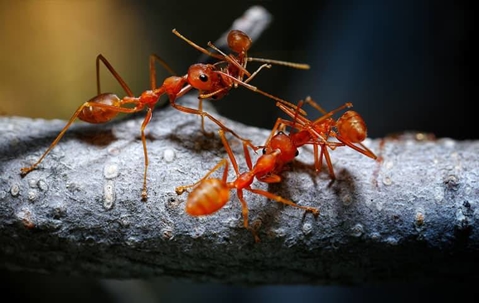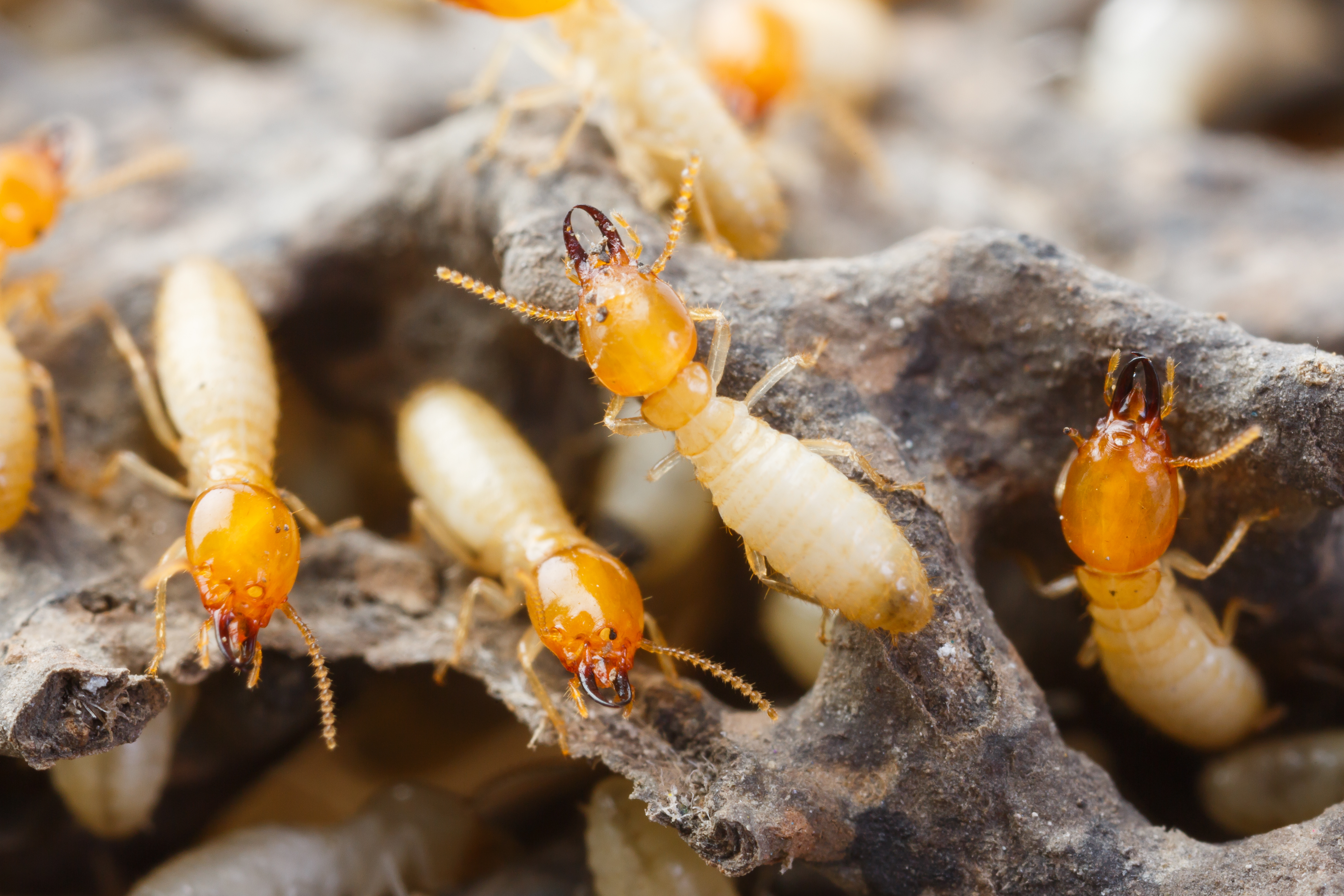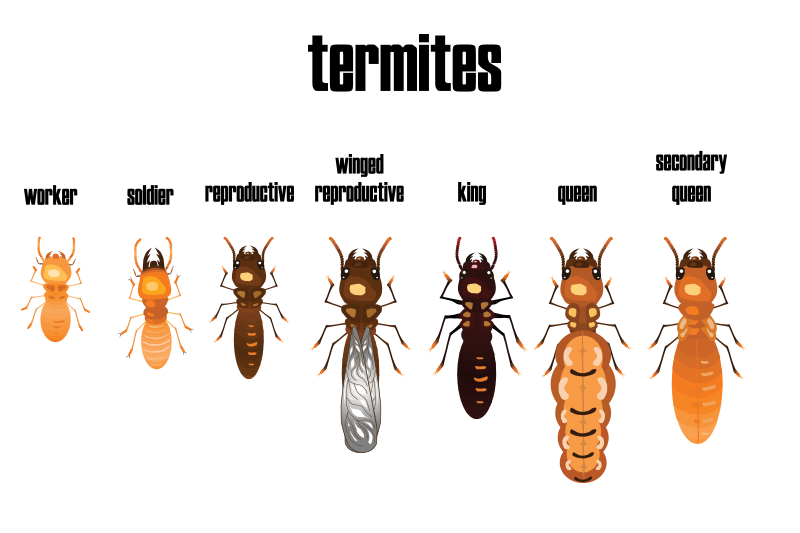Full Ant Control: Approaches and Services to Beat Ant Troubles
Environmental Impact of Bug Control: Balancing Effectiveness With Sustainability
The environmental effect of pest control is a vital problem that calls for a delicate balance between accomplishing effectiveness in ensuring and taking care of parasites sustainability of our ecological communities. From the use of harmful chemicals that leak into our dirt and water to the unintentional consequences on non-target species, the effects of traditional bug control practices are far-ranging.
Hazardous Chemicals in Pest Control
The utilization of hazardous chemicals in bug control presents considerable ecological and wellness risks that warrant cautious factor to consider and mitigation techniques. Herbicides, pesticides, and pesticides are frequently made use of to remove insects, yet their extensive application can bring about unplanned effects. These chemicals can contaminate soil, water resources, and the air, impacting not just the targeted pests but also valuable insects, wild animals, and people.

To attend to these threats, incorporated bug monitoring (IPM) strategies are being advertised as a much more lasting choice. IPM entails a combination of methods such as biological control, environment adjustment, and the targeted use pesticides as a last hope (ant control clemmons nc). By adopting a holistic technique to pest control, we can lessen the environmental and wellness influences connected with damaging chemicals while successfully taking care of pest populaces
Influence on Non-Target Types
Thinking about the unexpected consequences of insect control methods, the influence on non-target types is a crucial element that calls for complete examination. While parasite control procedures aim to target certain pests, various other microorganisms in the ecological community might be unintentionally impacted. Non-target species, consisting of helpful bugs, birds, creatures, and also plants, can experience indirect or straight damage from chemical applications or organic control techniques.
Chemicals can have sub-lethal or deadly impacts on non-target varieties. For instance, pesticides developed to fight a specific insect pest might damage pollinators like bees or natural killers such as ladybugs. In addition, chemical deposits can gather in the setting, impacting non-target microorganisms over time. Organic control agents, if not species-specific, can position risks to unplanned targets, interfering with the environmental balance.
To mitigate the impact on non-target types, incorporated bug administration (IPM) approaches that emphasize an alternative method to pest control are recommended. These approaches prioritize the usage of eco-friendly methods, reducing injury to helpful organisms while effectively managing pest populaces. Conducting extensive threat assessments and keeping track of the results of parasite control initiatives are vital action in protecting non-target species and promoting overall ecosystem health and wellness.
Dirt and Water Contamination
Unplanned environmental consequences of insect control techniques prolong past impacting non-target types, with substantial ramifications for soil and water contamination - termite control services. Pesticides, herbicides, and chemical plant foods utilized in bug control can leach into the dirt and contaminate groundwater, posing a risk to both marine and earthbound ecosystems.
Water contamination is one more essential issue connected with bug control techniques. Drainage from agricultural fields treated with pesticides can bring these chemicals into nearby water bodies, affecting marine microorganisms and water top quality. Contaminants in water sources can have significant effects, impacting not only marine life yet also human health and wellness through the intake of infected water or aquatic microorganisms. To minimize soil and water contamination from pest control tasks, incorporated insect administration techniques that prioritize sustainability and decrease chemical inputs are vital.
Air Air Pollution From Pesticide Usage
Direct exposure to air-borne chemicals throughout agricultural applications postures a significant concern for air pollution control steps. When pesticides are sprayed onto crops, they can volatilize right into the air and kind unstable organic substances (VOCs) and other airborne contaminants. These chemicals can add to the formation of ground-level ozone, a significant element of smog that can have detrimental results on human wellness, plant performance, and total air top quality. Additionally, chemical drift, where chemicals are carried by the wind to unintentional areas, can lead to the contamination of neighboring ecosystems and water bodies.

Strategies for Lasting Pest Control
In the realm of farming practices, carrying out sustainable bug control techniques is critical for preserving environmental balance and safeguarding plant yields. Lasting pest control highlights the use of environmentally friendly approaches to manage bug populations effectively while decreasing damage to non-target organisms and ecological communities. Integrated Parasite Monitoring (IPM) is an extensively adopted approach that combines organic, cultural, physical, and chemical control techniques to achieve long-lasting pest management services.
Crop rotation and diversification are also efficient strategies to interfere with pest life cycles and produce much less favorable conditions for bugs to thrive. Ultimately, by integrating these lasting pest control strategies, farmers can accomplish an equilibrium in between pest monitoring effectiveness and environmental stewardship.
Final Thought
Finally, the environmental impact of pest control techniques should be meticulously thought about to balance efficiency with sustainability. Damaging chemicals used in insect control can lead to soil and water contamination, air pollution, and damage non-target types - termite control. It is critical to execute lasting pest control techniques to minimize these negative results on the setting and promote a try this website healthier environment for future generations
By taking on an alternative strategy to pest control, we can lessen the environmental and health impacts linked with hazardous chemicals while properly handling pest populaces.

To reduce the air contamination caused by chemical usage, it is crucial to embrace incorporated insect monitoring approaches that prioritize the use of non-chemical parasite control techniques, such as crop rotation, natural killers, and immune crop ranges. Lasting bug control highlights the use of ecologically friendly methods to handle parasite populaces effectively while decreasing damage to non-target microorganisms and ecosystems. Integrated Bug Management (IPM) is an extensively adopted technique that combines organic, cultural, physical, and chemical control techniques to achieve long-term insect administration options.